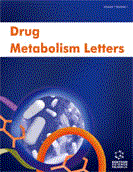Abstract
Time-dependent or mechanism-based CYP3A4 inhibition is an important adverse drug property that should be carefully managed during drug development. Evaluation of time-dependent inhibition is traditionally performed using liver microsomes or recombinant P450 isoforms. We report here higher throughput approaches to evaluate time-dependent CYP3A4 inhibition assay using cultured cryopreserved human hepatocytes. The assays were performed in human hepatocytes cultured in 96-well plates, with luciferin-IPA as the CYP3A4 specific substrate. The advantages of the approach are as follows: 1. The use of 96-well plates minimizes the quantity of human hepatocytes and test materials required for the assays. 2. The use of luciferin-IPA allows CYP3A4 activity to be quantified rapidly using a plate reader, thereby avoiding the need for LC/MS that is required for traditional substrates such as testosterone and midazolam. 3. The use of cultured (plated) hepatocytes allows effective removal of treatment medium and washing of the cells without the laborious centrifugation step that is required for hepatocytes in suspension. Two assays were developed: 1. IC50 shift assay; and 2. enzyme kinetic assay. The IC50 shift assay is intended for general screening purpose with which a time-dependent CYP3A4 inhibitor would be identified by an increase in inhibitory potency (quantified as a decrease in IC50) upon a 30 min. pre-incubation of hepatocytes with the inhibitor at 37 deg. C. Results with model inhibitors showed that the IC50 assay readily distinguished the time-dependent inhibitors (1-aminobenzotriazole, erythromycin) from the non-timedependent inhibitor (ketoconazole). The enzyme kinetic assay is used for the derivation of the kinetic parameters KI and kinact. With this assay, time and concentration dependent inhibition of CYP3A4 were observed for 1-aminobenzotriazole and erythromycin. With hepatocytes from 4 donors, KI and kinact values were calculated to be 22.0 to 70.7 μM, and 0.09 to 0.51 min-1, respectively, for 1-aminobenzotriazole; and 47.3 to 75.1 μM, and 0.26 to 1.48, respectively, for erythromycin. DMSO (tested up to 2% v/v) was found to significantly attenuate the time-dependent inhibitory effects of 1- aminobenzotriazole, and had no apparent effects on erythromycin. Acetonitrile and methanol at 1% v/v had significantly less effects. The higher throughput assays describe here can to be used routinely for the evaluation of time-dependent CYP3A4 inhibitory potential of drug candidates during early phases of drug development.
Keywords: Time-dependent inhibition, mechanism-based inhibition, irreversible P450 inhibition, cryopreserved human hepatocytes, drug-drug interaction, human hepatocytes, 96-well plates, midazolam, 1-aminobenzotriazole, erythromycin
 33
33














